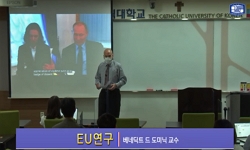This research examines the use of performance measurement in environmental conflict resolution (ECR) programs in United States state-level programs. Data are drawn from a survey of state administrators of ECR programs. Findings indicate that the use o...
http://chineseinput.net/에서 pinyin(병음)방식으로 중국어를 변환할 수 있습니다.
변환된 중국어를 복사하여 사용하시면 됩니다.
- 中文 을 입력하시려면 zhongwen을 입력하시고 space를누르시면됩니다.
- 北京 을 입력하시려면 beijing을 입력하시고 space를 누르시면 됩니다.


(Not) Measuring the Performance of Environmental Conflict Resolution: Lessons from U.S. State Programs
한글로보기https://www.riss.kr/link?id=A104727753
-
저자
ROSEMARY O'LEARY (Syracuse University, USA) ; CARLA PIZZARELLA (University of Massachusetts, USA)
- 발행기관
- 학술지명
- 권호사항
-
발행연도
2008
-
작성언어
English
- 주제어
-
등재정보
KCI등재,SCOPUS
-
자료형태
학술저널
- 발행기관 URL
-
수록면
11-26(16쪽)
-
KCI 피인용횟수
0
- 제공처
- 소장기관
-
0
상세조회 -
0
다운로드
부가정보
다국어 초록 (Multilingual Abstract)
This research examines the use of performance measurement in environmental conflict
resolution (ECR) programs in United States state-level programs. Data are drawn from a
survey of state administrators of ECR programs. Findings indicate that the use of
performance measurement by state programs is scarce as only six states reported measuring
the performance of their ECR program. Study results show many reasons for this finding:
lack of staff, lack of time, lack of funding, lack of knowledge concerning how to do
performance measurement, lack of knowledge as to how to measure the success of ECR, lack
of cost information about alternatives to ECR, too many outside factors intervening in ECR
efforts, and not all states have ECR programs. Research findings indicate lessons learned from
the states that have attempted measuring the performance of their ECR programs: good
management of process, personalize the program, marshall all resources, keep sight of the big
picture, and be prepared for the political side of performance measurement..
참고문헌 (Reference)
1 Robert D. Behn, "Why Measure Performance? Different Purposes Require Different Measures" 65 (65): 586-606, 2003
2 "These questions were modeled after surveys of state and local governments conducted by Julia Melkers and Katherine Willoughby in 2000 for the Sloan Foundation and the Governmental Accounting Standards Board (GASB)"
3 "The categories of “very effective,” “effective,” and “somewhat effective” were combined together here for reporting purposes"
4 "The categories of “significant problem” and “somewhat of a problem” were combined together here for reporting purposes. Rosemary O'Leary is Distinguished Professor of Public Administration and Maxwell School Advisory Board Endowed Chair at Syracuse University. Her areas of expertise include collaborative public management, collaborative governance, collaborative decision making, and conflict resolution. She has won ten national research awards and eight teaching awards. She is the only person to win three National Association of Schools of Public Affairs and Administration awards for Best Dissertation (1989), Excellence in Teaching (1996) and Distinguished Research (2004). She is a member of the National Academy of Public Administration"
5 "The categories of “a significant problem” and “somewhat of a problem” were combined together here for reporting purposes"
6 Robert D. Behn, "The Varieties of CitiStat" 66 (66): 332-340, 2006
7 Julia Melkers, "The State of the States: Performance-Based Budgeting Requirements in 47 out of 50" 58 (58): 66-73, 1998
8 Rosemary O’Leary, "The Promise and Performance of Environmental Conflict Resolution" Resources for the Future Press 2003
9 Rosemary O’Leary, "The Promise and Performance of Environmental Conflict Resolution" Resources for the Future Press 2003
10 William D. Coplin, "The Professional Researcher as Change Agent in the Government-Performance Movement" 62 (62): 699-711, 2002
1 Robert D. Behn, "Why Measure Performance? Different Purposes Require Different Measures" 65 (65): 586-606, 2003
2 "These questions were modeled after surveys of state and local governments conducted by Julia Melkers and Katherine Willoughby in 2000 for the Sloan Foundation and the Governmental Accounting Standards Board (GASB)"
3 "The categories of “very effective,” “effective,” and “somewhat effective” were combined together here for reporting purposes"
4 "The categories of “significant problem” and “somewhat of a problem” were combined together here for reporting purposes. Rosemary O'Leary is Distinguished Professor of Public Administration and Maxwell School Advisory Board Endowed Chair at Syracuse University. Her areas of expertise include collaborative public management, collaborative governance, collaborative decision making, and conflict resolution. She has won ten national research awards and eight teaching awards. She is the only person to win three National Association of Schools of Public Affairs and Administration awards for Best Dissertation (1989), Excellence in Teaching (1996) and Distinguished Research (2004). She is a member of the National Academy of Public Administration"
5 "The categories of “a significant problem” and “somewhat of a problem” were combined together here for reporting purposes"
6 Robert D. Behn, "The Varieties of CitiStat" 66 (66): 332-340, 2006
7 Julia Melkers, "The State of the States: Performance-Based Budgeting Requirements in 47 out of 50" 58 (58): 66-73, 1998
8 Rosemary O’Leary, "The Promise and Performance of Environmental Conflict Resolution" Resources for the Future Press 2003
9 Rosemary O’Leary, "The Promise and Performance of Environmental Conflict Resolution" Resources for the Future Press 2003
10 William D. Coplin, "The Professional Researcher as Change Agent in the Government-Performance Movement" 62 (62): 699-711, 2002
11 Kaifeng Yang, "The Performance-Trust Ling: Implications for Performance Measurement" 66 (66): 114-126, 2006
12 "Telephone interview with Weldon Schieffer, program manager of the Oklahoma Institute for Issue Management and ADR"
13 "Telephone interview with Ramona Buck, public policy director of the Maryland Mediation and Conflict Resolution Office"
14 "Telephone interview with Holly Gadbaw, board member of the Western Washington Growth Management Hearings Board; Telephone interview with Judy Wall, administrative chair of the Eastern Washington Growth Management Hearings Board"
15 "Telephone interview with Darin Harris, organizational development analyst of the Wisconsin Department of Natural Resources"
16 "Telephone Interview with Mike Niemeyer, ADR coordinator of the Oregon Department of Justice"
17 Patria de Lancer Julnes, "Promoting the Utilization of Performance Measures in Public Organizations: An Empirical Study of Factors Affecting Adoption and Implementation" 61 (61): 693-708, 2001
18 Patricia Ingraham, "Performance: Promises to Keep and Miles to Go" 65 (65): 390-395, 2005
19 Harry P. Hatry, "Performance Measurement: Fashions and Fallacies" 25 (25): 352-358, 2002
20 Arie Halachmi, "Performance Measurement, Accountability, and Improved Performance" 25 (25): 370-374, 2002
21 Evan Berman, "Performance Measurement in U.S. Counties: Capacity and Reform" 60 (60): 409-420, 2000
22 Theodore H. Poister, "Performance Measurement in Municipal Government: Assessing the State of the Practice" 59 (59): 325-335, 1999
23 Geert Bouckaert, "Performance Measurement and Management: the Achilles Heel in Administrative Modernization" 25 (25): 359-362, 2002
24 Gloria A. Grizzle, "Performance Measurement and Management: the Achilles Heel in Administrative Modernization" 25 (25): 359-362, 2002
25 Julia Melkers, "Models of Performance Measurement Use in Local Governments: Understanding Budgeting, Communication, and Lasting Effects" 65 (65): 188-, 2005
26 Julia Melkers, "Models of Performance Measurement Use in Local Governments: Understanding Budgeting, Communication, and Lasting Effects" 65 (65): 180-190, 2005
27 Theodore H. Poister, "Measuring Performance" Jossey-Bass 2003
28 Theodore H. Poister, "Measuring Performance" Jossey-Bass 2003
29 Stephen Page, "Measuring Accountability for Results in Interagency Collaboratives" 64 (64): 591-606, 2004
30 Kaifeng Yang, "Managerial Effectiveness of Government Performance: Testing a Middle-Range Model" 67 (67): 861-879, 2007
31 Evan Berman, "How Useful is Performance Measurement" 25 (25): 348-351, 2002
32 Donald P. Moynihan, "Goal-Based Learning and the Future of Performance Management" 65 (65): 203-216, 2005
33 William T, "Environmental Performance Measures in a Federal System" National Academy of Public Administration 2000
34 Rosemary O’Leary, "Environmental Mediation: What Do We Know and How Do We Know It?,, In Mediating Environmental Conflicts: Theory and Practice" Quorum Books 1995
35 Sean Nicholson-Crotty, "Disparate Measures: Public Managers and Performance Measurement Strategies" 66 (66): 101-113, 2006
36 XiaoHu Wang, "Assessing Performance Measurement Impact: A Study of U.S. Local Governments" 26 (26): 26-43, 2002
37 "As state above, as of this writing, the Oregon Conflict Resolution Commission is no longer in existence. Some of the functions of the Commission have been assumed by the Department of Justice, the Oregon Consensus Program at Portland State University, and the University of Oregon School of Law"
38 "As of this writing, the Oregon Conflict Resolution Commission is no longer in existence. Some of the functions of the Commission have been assumed by the Department of Justice, the Oregon Consensus Program at Portland State University, and the University of Oregon School of Law. (See Box 2.)"
39 Melvin J. Dubnick, "Accountability and the Promise of Performance: In Search of the Mechanisms" 2003
40 IBM Center for the Business of Government, "10 Challenges Facing Public Managers"
동일학술지(권/호) 다른 논문
-
- 한국행정학회
- 이석환
- 2008
- KCI등재,SCOPUS
-
- 한국행정학회
- Jiho Jang
- 2008
- KCI등재,SCOPUS
-
- 한국행정학회
- Chul-Young Roh
- 2008
- KCI등재,SCOPUS
-
Does Municipal Debt Impact Housing Property Values?
- 한국행정학회
- Myungsoon Hur
- 2008
- KCI등재,SCOPUS
분석정보
인용정보 인용지수 설명보기
학술지 이력
| 연월일 | 이력구분 | 이력상세 | 등재구분 |
|---|---|---|---|
| 2023 | 평가예정 | 해외DB학술지평가 신청대상 (해외등재 학술지 평가) | |
| 2020-01-01 | 평가 | 등재학술지 유지 (해외등재 학술지 평가) |  |
| 2011-01-01 | 평가 | 등재학술지 유지 (등재유지) |  |
| 2009-01-01 | 평가 | 등재학술지 유지 (등재유지) |  |
| 2007-01-01 | 평가 | 등재학술지 유지 (등재유지) |  |
| 2004-01-01 | 평가 | 등재학술지 선정 (등재후보2차) |  |
| 2003-01-01 | 평가 | 등재후보 1차 PASS (등재후보1차) |  |
| 2002-01-01 | 평가 | 등재후보학술지 유지 (등재후보1차) |  |
| 1999-07-01 | 평가 | 등재후보학술지 선정 (신규평가) |  |
학술지 인용정보
| 기준연도 | WOS-KCI 통합IF(2년) | KCIF(2년) | KCIF(3년) |
|---|---|---|---|
| 2016 | 0.29 | 0.29 | 0.28 |
| KCIF(4년) | KCIF(5년) | 중심성지수(3년) | 즉시성지수 |
| 0.25 | 0.27 | 0.381 | 0.05 |




 KCI
KCI







